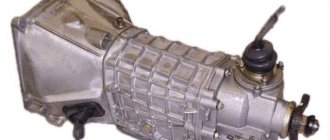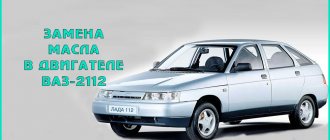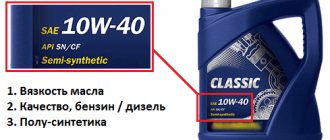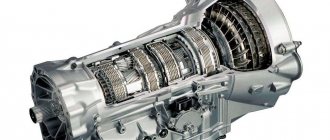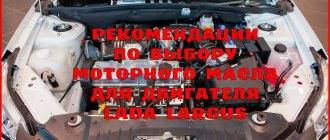To come in
Already have an account? Sign in.
Latest Visitors 0 users online
No registered user is viewing this page
Probably every sane person understands that without a substance that lubricates mechanical components and assemblies, not a single car will go far. Moreover, it simply won’t start. Therefore, automobile oil for the engine, as well as for the transmission, is one of the most important components that ensure long-term, trouble-free operation of all vehicle components.
Functions and classification of automotive lubricants
The most important tasks performed by modern lubricants are:
- reducing friction between parts of mechanical components and assemblies;
- fight against oxidative processes;
- cooling.
- Ordinary mineral (basic). When obtaining them, the method of selective purification is used, as well as the removal of paraffins with solvents.
- Improved mineral, hydrotreated. Working fluids with a low content of harmful substances such as paraffins and aromatic substances.
- Lubricants with a high degree of viscosity. Produced using NS technology (catalytic hydrocracking method). They are classified differently: as mineral, semi-synthetic or synthetic - depending on the opinion of the manufacturer.
- Oils with a high level of oxidative stability, good viscosity, and the absence of paraffins in their composition (based on polyalphaolefins, PAO). These are basic synthetic lubricants. They do not contain harmful impurities of sulfur and metals.
- Synthetic substances not included in group 4, as well as base compounds created on the basis of plant extracts (esters). They have a very high level of resistance to a dense oily film, flush the engine well, and have thermal and antioxidant stability.
- Oil obtained using GTL technology (Gas To Liquid). By all indicators - the best. But so far GTL, PIO, and polyinternaolefins have not become widespread. Only Shell began mass-producing them under the name Pennzoil.
Criteria for choosing engine oil
If a motorist does not know what to rely on when choosing a lubricant, he should, first of all, turn his attention to a product from a foreign manufacturer. As a rule, all motor fluids can be classified. The substances differ from each other in composition; you can buy mineral lubricants in stores, which are considered basic (they are created by selective purification by removing paraffins using a solvent); minerals that have been subjected to hydroprocessing; as well as lubricants that have the highest degree of viscosity.
Motor fluids that have the highest level of oxidative stability, as a rule, have excellent viscosity and do not contain paraffins. This class includes exclusively basic synthetic fluids without harmful impurities of sulfur and metals.
Manufacturers also create synthetic lubricants that are based on plant extracts. Such substances have a high level of resistance to the outer oil film. Their main advantage is considered to be the ability to flush the power unit, showing good thermal and antioxidant functions. It is believed that the best oil that exists today is a lubricant created using GTL technology. This substance is produced exclusively by Shell, where this lubricant is called Pennzoil.
Basic properties of automobile oils
The vast majority of modern lubricating fluids contain substances from several of the above groups. Additives are also added to smooth out the deficiencies that occur in base oils. All these manipulations are designed to improve the key properties of working lubricants. Automotive oil - be it Shell Helix, Mobil 1, Castrol, Motul, Liqui Moly, Total or Zeke - must have certain qualities, without which it cannot work effectively.
- Lubricating qualities. PAO (group 4) is the worst, so they are now used as additives.
- Wide operating temperature range. The best ones are PAO and Esther (groups 4, 5).
- Ability to work for a long time without changing the properties of the base oil (non-oxidation). The worst is in groups 1–3 (mineral, hydrocracking).
- Hygroscopicity, that is, moisture absorption - the less, the better. The esters (group 5) have a bad time with this.
- Polarity is the constant presence of a layer of lubricant in the engine components. The best ones are from esters. At the same time, this quality increases the coefficient of friction. Therefore, the “golden” mean is important here - esters are added to the base composition as additives.
- Evaporation level. The highest is for substances of groups 1–3 (10% and above). Optimal - for mixtures of 4 and 5 groups (5–9%).
The goal of each manufacturer is to produce a motor oil that will have optimal performance in all of the above qualities. Unfortunately, it is not yet possible to obtain ideal properties for the listed parameters.
Modern manufacturers of automobile oils
Lubricants for injection and diesel engines, as well as for automatic and manual transmissions, are produced by quite a few companies. It is impossible to single out which oil has the best characteristics for all operating conditions - there is no clear leader for the reasons described above. In addition, in different regions and climate zones, the preferences of motorists differ. Product prices play an important role in this. But the most popular, both in Russia and in other European countries, can be named.
- Exxon Mobil - this corporation is one of the world's leading manufacturers of auto chemicals. Synthetic motor oils of the Mobil 1 series are rightfully considered one of the best in terms of quality indicators. They have been produced since 1974. During this time, the corporation's products have been constantly improved.
- Royal Dutch Shell is one of the most powerful economic groups, which includes energy and oil refining companies. Shell operates 30 oil refineries, including the largest in Europe. He is also the owner of the world's largest network of gas stations. Its synthetic and semi-synthetic lubricants are traditionally of high quality.
- Castrol - oil under this name is known to most Russian car enthusiasts. This brand, which has been known to the world for more than 100 years, belongs to the group, one of the leading lubricant manufacturers in the world. Castrol synthetic and semi-synthetic oil for cars, trucks, and motorcycles is popular and widespread in Russia.
Main selection criteria
For example, Shell and Mobil are the leaders in terms of prevalence in the Russian automotive chemicals market. Castrol is not far behind them. Let's try to figure out which oil is best to use in different climatic conditions. During combustion in the chamber, fuel leaves behind residual deposits and soot. These products do not disappear anywhere, depositing on the walls of engine parts. The task of lubricating fluids is not only to reduce the coefficient of friction between parts, but also to prevent chemical oxidation reactions and wash combustion products from parts. This is why it is so important to regularly change engine lubricant - because it has its own working life.
Today, the choice of auto chemicals on the domestic market is very large. Unfortunately, counterfeits are sold along with original high-quality products - after all, when buying, you cannot distinguish them by eye. This causes enormous damage to the reputation of such popular brands as Mobile or Castrol, as well as others listed above.
In addition to classification according to their qualities and composition (mineral, semi-synthetic and synthetic), lubricants are divided into summer, winter, all-season. Working fluids are also produced separately for gasoline and diesel engines, and there are universal ones - they are suitable for both types of engines. They sell more expensive ones (original Shell or Mobile) and cheaper ones - such as Total, Lukoil, TNK. But more expensive does not always mean better.
As you can see, the variety is enormous. According to different selection criteria, different brands of oils are in the lead. For example, if you are most interested in economical fuel consumption, then in this case it is worth taking a closer look at Zeke and Shell. According to various sources of information, the use of these materials can provide up to 8% savings in fuel consumption.
For parameters such as oil film stability and the ability to withstand extreme temperature conditions, it is better to choose Mobil. This characteristic helps to increase the service life of the engine by reducing wear of parts. But at the same time, engine power is slightly lost due to the higher friction coefficient created by the oil film. Shell and Castrol have these qualities a little less pronounced.
Environmental friendliness of the car and oil
No less important is the content of toxic substances in the liquid. After all, exhaust gases are harmful to others. As a rule, oil contains components such as sulfur and phosphorus. They do not affect the gas analyzer readings, but do have an impact on the environment. In addition, substances after oil combustion in the engine significantly reduce the resources of the neutralizer cells.
If you compare Shell or Mobile, the largest amount of sulfur is contained in Shell. Studies have shown that the lowest amount of sulfur is found in Castrol. If we talk about the amount of phosphorus, then almost all manufacturers fit into the 0.12% figure. The least amount of phosphorus is contained in Castrol and Shell. The sulfur levels of these two brands differ greatly, by almost 0.67%. Which oil is most reliable in extreme situations? As you know, in our country there are strict GOST standards. They are the ones who determine which oil is the best. Of course, if the oil is produced by a European company, then its performance is determined by no less stringent standards. Important for our climate zone are the oil’s ability to withstand critical loads, as well as reduce engine wear.
One of the important characteristics of a lubricant is the stability of the oil film. Another indicator is how well the oil can protect the engine from premature wear. Complies with Mannol and Mobile critical load standards. Compared to them, Shell's result is slightly lower. This oil has some comments regarding power ratings. In last place in terms of engine wear protection is Castrol. Mobile is recognized as the most reliable oil.
Test results
Periodically, in Russian specialized laboratories, motor oil from the leading manufacturers listed above is checked according to the following parameters:
- kinematic and dynamic viscosity – all of the above are good; alkaline number (presence of additives) – a good indicator for Zik, Mobil, Shell, Castrol and Total; density - all correspond to the declared one; anti-wear properties are led by Mobil and Shell, with Total and Castrol slightly behind.
The final conclusion of Russian specialists, based on the results of the latest laboratory studies and tests, is that all of the above-mentioned companies produce oils capable of providing up to 300 thousand km of trouble-free service life for the vast majority of engines.
Under normal operating conditions, they are all suitable for use. Small differences are observed only under heavy loads and high temperatures, that is, in extreme conditions.
Which motor oils do car owners choose - Shell or Mobil?
In September 2020, according to PartReview, Mobil motor oils topped more auto ratings than Shell:
Mobil is chosen by owners of such cars as: BMW X5, Chevrolet Aveo, Ford Focus, Honda Civic, Hyundai Elantra, Infiniti FX, Opel Astra, Mazda Capella, Nissan X-Trail, Subaru Forester, Toyota Chaser, Toyota Corsa, Toyota FunCargo, Toyota Hilux Surf, Volkswagen Bora, and others.
Shell is chosen by owners of such cars as: Daewoo Matiz, Great Wall Hover, UAZ Patriot, Daewoo Lanos (Sens), Nissan Bluebird, Skoda Yeti, Toyota Corolla Fielder, Toyota Gaia, Toyota Tercel, Toyota Vista, VAZ (Lada) Priora, and others .
Which motor oil is better: Mobile or Shell
The oil used in internal combustion engines performs several tasks. It cools engine parts, prevents corrosion, reduces friction of moving parts, thereby slowing down wear.
Since there are many types and varieties of engines, there are no less motor oils. After all, the operation of different propulsion systems is designed for certain operating conditions. You can determine which oil to use when operating a car, for example, Shell or Mobile, if you know the principles of oil classification.
Other motor oil comparisons
If this comparison does not satisfy your curiosity, then you can also find many others on PartReview.
For example, comparisons of Shell motor oils with such companies as: Lukoil, LIQUI MOLY, Castrol, ZIC, MOTUL, IDEMITSU, Mannol, Total, Eneos, NGN.
Comparisons of Mobil motor oils with such companies as: Lukoil, LIQUI MOLY, Castrol, ZIC, MOTUL, IDEMITSU, Mannol, Total, Eneos, NGN are also available.
In addition, you can find out who is better among other motor oil manufacturers: Shell or Lukoil, Lukoil or LIQUI MOLY, Lukoil or Mobil, Lukoil or Castrol, Lukoil or ZIC.
About the manufacturers Mobile and Shell
A significant number of car owners have far from a complete understanding of engine operation at different temperatures, nor do they show interest in the chemical composition of oils. They are based only on reviews of other drivers and recommendations of specialists.
Both concerns have long gained popularity on the world market. The first, North American, has existed for more than 120 years. Over this period of time, it has strengthened significantly and absorbed several less significant competitors.
In 1999, it merged with the big English company. In terms of sales, the corporation has been in second place in the United States for a long time, confidently maintaining its place among the top five world leaders.
Shell, which is the largest manufacturer of motor oils, is a joint product of two countries - the Netherlands and Great Britain. It leads the world market in terms of sales volumes. Created at the very beginning of the 20th century.
The products made by Mobil and Shell Helix are of high quality. At the same time, the first manufacturer has compounds that reduce consumption.
The second produces motor oils that allow you to start engines without problems in any heat. At the same time, they reliably protect the motors. In addition, this company’s line includes GTL oils.
General information about Mobile and Shell Helix motor oils
Both manufacturers have mineral water in their range. The process of its manufacture is the primary (selective) purification of the composition from the paraffins present in it.
When mineral oils are hydrotreated, their characteristics improve. They lubricate parts better. There are very few substances that are pollutants in them.
Lubricants with special viscosity are also produced, which is ensured by the hydrocracking process. Such compositions are present in the assortment of both Shell and Mobile. They are divided into mineral, synthetic, semi-synthetic.
All these products are stable against oxidation, have good viscosity, and do not contain harmful impurities. GTL oils are of the highest quality. Mobile doesn’t have any lineups of this level yet.
Both Mobil and Shell Helix are manufactured for both diesel and gasoline engines. In addition, there are universal compositions that are suitable for working with both internal combustion engines.
When purchasing motor oil, you should always monitor the kinetic viscosity indicator. If the viscosity is high, then it can be poured into the engine even if the summer heat reaches tropical levels.
Motor oils intended for internal combustion engines always contain a variety of additives that improve its properties. In recent years, synthetic oils have become more popular. They contain chemical compounds that provide higher performance.
Which motor oils are more popular - Shell or Mobil?
In September 2020, on PartReview, Shell motor oils were generally more popular than Mobil.
In terms of votes, Shell motor oils outperformed Mobil:
- For Shell, the ratio of positive votes (677) to negative votes (212) was 465 votes.
- For Mobil, the ratio of positive votes (606) to negative votes (166) was 440 votes.
In terms of the number of reviews, Shell motor oils surpassed Mobil:
- There are 277 reviews written for Shell motor oils: 196 positive, 40 neutral, 41 negative.
- There are 242 reviews written on Mobil motor oils: 178 positive, 33 neutral, 31 negative.
Engine oil requirements
When choosing an oil, you should rely on the following basic parameters:
Viscosity is a state of aggregation that completely depends on temperature. This indicator is considered important, since it is responsible for the friction force with which the engine cylinders operate.
Base number - indicates the volume of ions that, during operation, eliminate oxides, cope with wear and show cleaning characteristics. The higher the indicator, the longer the oil will be able to cope with its task.
Engine oil parameters
There are three main oil parameters that will help the driver make a choice:
• oil viscosity is its state of aggregation (liquid, thick, solid), depending on temperature. Usually they take wide temperature ranges - from -30 to +100 degrees Celsius. This is one of the most important indicators, since it is the viscosity that determines the friction force with which the engine cylinders interact, and, as a result, the engine wear rate.
• alkalinity number is the content of ions in automobile oil that neutralize acids and oxides during engine operation. Measured in KOH/g. The higher the value of this parameter, the longer the oil will be able to neutralize the harmful acidic environment
• content of ions (calcium, phosphorus and others) – these substances determine the alkalinity number, the washing ability of oils and their anti-wear properties.
The combination of these indicators determines the quality of the motor oil and its focus: additional protective properties or better engine performance. Currently, according to the “auto review” rating for 2014, the most popular among them are the products of Shell and Mobile companies.
They are similar: they are synthetic, high-quality oils with their own place in the market.
This statement leads to the question: “Which one is of better quality?”
To answer this, let’s analyze the viscosity, base number and content of various ions.
Review and properties of additives in Shell Helix and Mobil oils
When analyzing the chemical composition, the alkaline indicator is what you need to pay attention to first, since it determines the variety of additives. They ensure the presence of ions:
- zinc,
- boron,
- calcium,
- phosphorus,
- magnesium
Mobile always contains more calcium - 20 mg/kg (Castrol also claims the presence of the same level of calcium ions in its products).
Shell products contain less calcium, no more than 13.55 mg/kg.
The remaining elements and compounds are present in approximately equal proportions. However, Mobile has a little more of them.
At the same time, Shell oils contain a larger volume of barium – 15 mg/kg. In Mobile this figure is 9.5.
But in general, the amount of basic additives in Mobil formulations is higher than in Shell. In particular, they contain molybdenum (Mo), which improves the lubricating effect. This metal is designed to protect engine parts and components during friction.
When the motor operates, microcracks form in the parts. They are filled with molybdenum particles. Mo is highly durable, thanks to it the life of the motor is extended. A kilogram of Mobil oil contains 150 milligrams of molybdenum.
Molygen test for used engine oil
Many drivers, almost in unison with each other, recommended using a product from a German manufacturer. We came up with Liqui Moly 5W-30 Molygen, so we actually tested the survivability of this product under harsh operating conditions.
The first car became the test subject. As time passed, the situation did not change: neither on the first with moligen, nor on the second with shel. By the way, please note that our vehicles are used for delivery, and it turns out that their loads are quite high. A month later there were already results.
There were practically no changes on the second car, the color did not change. The engine maintained traction and consumption was within normal limits.
Things were worse from the first. In addition to the fact that a knock was heard in the cabin while driving, fuel began to leak too quickly, as did the oil itself. There was a feeling that after the French Total, the engine resisted with all its might the use of Moligen as a lubricant. And we solved this problem...
We immediately took the car to a service center and flushed the system from head to toe. Imagine our surprise that a lot of old deposits from Total flowed out along with the liquid. We immediately concluded that the oil served not as a lubricant, but as a flusher. After flushing the system again, we filled it with the same Moligen and sent the car to work.
What do you think the results were?
After increasing the mileage by 2000 kilometers, all knocking noises stopped, oil waste stopped and fuel consumption decreased. After this good news, we started checking the second car.
Having traveled approximately 12,000 km by the time of the inspection, we decided to change the fluids in it. We didn’t have to choose for long; very soon the car acquired new motor oil from a German manufacturer.
By changing the lubricant several times and using a small analytical component, we avoided unpleasant consequences in the form of diagnostics and all kinds of replacements of parts and assemblies. As a result, we received two completely new cars, as if they had just been bought yesterday at a car dealership.
But before finishing, I would like to say a few more words about the oil itself.
Waste expense
When the engine is running, a process called oil burnout occurs. This parameter indicates the volume of motor oil burned in the internal combustion engine. It can also be called an indicator of efficiency.
There are maximum permissible consumption indicators for waste. In such cases, the less motor oil is consumed, the more economical it is considered.
All Mobil products are superior to Shell Helix in this regard. The difference in waste is close to three percent. But such an indicator is not a significant value, based on which a choice can be made.
Shell shows increased consumption. Without topping up, it will operate for 4,500 km, then the oil level will drop, and by 5,000 km it will drop below the permissible values.
Mobile is a more economical option, but the difference between them is not so noticeable - about 3%. This is indicated by the following data:
- On average, Mobile oil consumes 11.32 mg per 100 kilometers.
- Shell consumption is 11.39 per 100.
The physical characteristics and chemical composition of oils are responsible for the proper functioning of the engine.
Operation at low temperatures
The lubricants were also tested in cold conditions. At the same time, temperatures were brought to minus 30 degrees. Studies have shown that Shell oils do not liquefy at 100°C.
In this indicator, it surpasses its competitor, as well as semi-synthetic samples from G-Energy and Motul.
The properties of the compositions from both brands remain at the original level during the cold season. Even at 30 degrees below zero, Shell Helix and Mobil maintain their viscosity characteristics, providing a start within three seconds.
What is better, Shell Helix or Mobile?
The large presence of additives in motor oil is only an indirect factor influencing the functioning of the engine. During the tests, Shell oil performance was not inferior to Mobile.
Differences are present only when we are talking about “soft” parts, that is, made of metals such as copper and aluminum. But in steel engines Shell shows advantages.
Both options have their advantages, but it is necessary to determine the optimal area for their work. In a situation where, due to the operating conditions, it is not possible to fill the vehicle with the proper fuel, a large package of additives must be added to the oil composition to increase the alkaline number - the Mobile brand fits this criterion.
It is also important that the oil and engine are compatible. As noted, Shell will suit steel equipment, and Mobil will suit aluminum equipment.
Climatic indicators, fuel quality, as well as vehicle operating conditions - all this affects the performance of the oil. Therefore, the answer to which choice to make will be completely different in different conditions.
Chemical characteristics of Shell and Mobile
So, the choice is simply huge, but expensive oil does not mean high-quality. Let's not forget that brands such as Shell, Castrol or Mobile are most often counterfeited. This is what causes serious damage to these brands. However, the final choice between Mobile or Castrol must be made taking into account the characteristics of the car.
As a rule, after the liquid enters the engine, its properties begin to change seriously. After approximately 3-5 hours, initial oxidation begins to occur. After this, the substance is broken in, and its chemical composition becomes stable.
- Fuel consumption when operating a vehicle.
- Power and dynamics.
- Environmental safety of the vehicle.
- Starting characteristics.
If we compare the liquid according to such a parameter as fuel consumption, then the most economical brands turned out to be Zik, Shell and Esso. Despite the fact that their viscosity ratio is the same, compared to mineral oil, fuel savings when using these grades is almost 8%.
How does fluid affect power and dynamics? As you know, oil is necessary to protect moving elements from harmful substances and premature wear. However, at high temperatures its viscosity changes significantly. If you use a liquid with a high viscosity, then the protective film is larger, due to this the engine components can be used longer, but another problem arises.
The friction force becomes significantly greater. This leads to the fact that the power of the power unit becomes less. Using an oil that has too low a viscosity will result in more engine power until the oil film is destroyed.
No less important is the content of toxic substances in the liquid. After all, exhaust gases are harmful to others. As a rule, oil contains components such as sulfur and phosphorus. They do not affect the gas analyzer readings, but do have an impact on the environment. In addition, substances after oil combustion in the engine significantly reduce the resources of the neutralizer cells.
If you compare Shell or Mobile, the largest amount of sulfur is contained in Shell. Studies have shown that the lowest amount of sulfur is found in Castrol. If we talk about the amount of phosphorus, then almost all manufacturers fit into the 0.12% figure.
The least amount of phosphorus is contained in Castrol and Shell. The sulfur levels of these two brands differ greatly, by almost 0.67%. Which oil is most reliable in extreme situations? As you know, in our country there are strict GOST standards. They are the ones who determine which oil is the best.
Of course, if the oil is produced by a European company, then its performance is determined by no less stringent standards. Important for our climate zone are the oil’s ability to withstand critical loads, as well as reduce engine wear.
Analysis of chemical composition and base number The chemical composition of automobile oil is determined by its additive elements, the content of which is measured in milligrams per kilometer. These elements include calcium, phosphorus, zinc, boron, and magnesium ions. In terms of the content of calcium ions, Mobile or Castrol oils have an undeniable advantage.
It contains more than 2000 mg/kg, compared to 1354 mg/kg Shell oil. The amount of magnesium is approximately the same. The content of phosphorus, zinc, boron is also higher in Mobil products, but it cannot be said that the difference between these indicators is great - on average, the deviation reaches 10%.
However, Shell oil contains 2 times more barium than its competitor - 14 mg/kg. It is noticeable with the naked eye that Mobile oil is significantly ahead of Shell in terms of the content of various ions. This quantitative advantage results in a higher TBN: on average, Mobile oils show values in the region of 9.5 mg KOH/g, while Shell oils have a value of about 5.40 mg KOH/g.
An interesting feature of Mobile oils, which significantly improves the functionality of the product, is the molybdenum content. This metal protects the engine from wear and reduces the effect of friction. Its mechanism of action is simple - it fills microcracks, increasing the smoothness of the surface. The average molybdenum content in Mobil oils is 150 mg/kg.
Despite Shell's apparent lag in terms of quality composition, empirical experience shows that the compared oils show equally good performance in terms of engine wear protection. The only significant difference between them is the difference in protection between aluminum and steel parts, which has been studied due to trace concentrations of iron.
Mobile oil shows the best results when working with an aluminum engine, and Shell oil - with a steel one. Also, in practical use, these oils show almost the same ability to protect against acids and various oxides. Despite the fact that Shell oil has an alkaline number almost twice as low as Mobile, it maintains the permissible acidity level no worse. Comparison of physical properties It has already been said that viscosity is one of the significant parameters of automobile oil.
Both of these oils are good, but it is important to determine the optimal zone for their operation. If a car is operated in conditions where it is difficult to provide the car with high-quality fuel, then the car oil must have a large number of additive elements that will provide an increased alkaline number, like Mobile oils.
After analyzing all these factors, the car enthusiast needs to make his own choice between these products. The operating conditions of the car, the quality of gasoline, climatic conditions - all this affects the performance of the oil. Therefore, the answer to the question: “Who is better, Shell and Mobile?” will be completely different in different situations.
When analyzing the chemical composition of motor oil, first of all, pay attention to the base number, which is determined by the variety of additives used. Their calculated amount is included in the product composition and is expressed in milligrams per kilogram of oil.
This manufacturer immediately takes the bull by the horns, advertising its advantages here and there. On the one hand, why not openly promote your merits, if they actually exist, and praise them. On the other hand, some motorists are alarmed.
DETAILS: Changing the oil and filter of the Mitsubishi Pajero Sport V6 30 internal combustion engine, instructions on how to change the oil and oil filter of the Pajero Sport with your own hands
Be that as it may, here are the main advantages of this oil, according to the manufacturer itself:
- Excellent results at low temperatures. The internal combustion engine is reliably protected and starting it even in severe frost is easy and quick.
- Effective protection of internal combustion engines at high temperatures. Modern cars are increasingly equipped with turbochargers (providing turbocharging), which can significantly improve the car's performance, but they operate at high temperatures. To protect the internal combustion engine in such conditions, it is recommended to use high-quality oil, such as Mobile.
- Highly effective cleaning characteristics. Mobil oil components and additives cope with slags of any nature. Excess deposits (slag) are formed mainly in extreme conditions characteristic of our country.
- The engine is fully protected. The duration of operation of the internal combustion engine is even guaranteed by the manufacturer Mobile (if, of course, the owner constantly fills this oil and not some other). This sounds pretty good, because for many Russians, buying a car is one of the most important financial expenses or investments in life.
- Lower fuel consumption, which is explained, again, by synthetic properties. Conventional mineral oil is not as effective in increasing the efficiency of power units (diesel and gasoline), which, in turn, increases fuel consumption.
- Efficiency proven by various tests and practice.
- Recognition among automakers who themselves recommend using Mobile oil for the engines of their creations. And this applies not only to the Mercedes-Benz Corporation, whose cars have been competing in Formula 1 races under the auspices of Mobile since 1995.
Secrets and technology
Let us remind the reader that Mobil oils began to be produced during the first oil production in the United States. The company still produces various types of oils: synthetic, semi-synthetic and mineral.
It is no secret that the production of such a “hyped” product uses its own secrets. Advanced technologies barely have time to be invented, and Mobile is already preparing the rights to acquire them.
The technology for the production of Mobil oils can be represented as follows:
- extracted oil is delivered to factories;
- here it is purified, desalted, heated and split into its components;
- then various additives are added, but always taking into account the requirements for a particular region.
Particular attention should be paid to the production of synthetic oil, which is based on special carbon components. First split into ethylene particles, and then rebuilt into chains of molecules, but with the addition of hydrogen and carbon, the components of Mobil lubricant are a super-oil, characterized by ideal purity and allowing the operation of internal combustion engines to the limit of what is possible.


